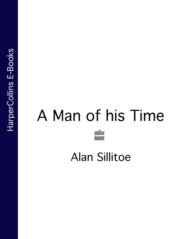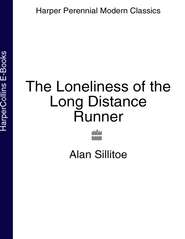По всем вопросам обращайтесь на: info@litportal.ru
(©) 2003-2024.
✖
Alligator Playground
Автор
Год написания книги
2018
Настройки чтения
Размер шрифта
Высота строк
Поля
‘It would be unforgivable if I didn’t.’
‘You like to keep everybody happy?’
‘It’s the best way of keeping myself happy.’
He wondered why she laughed, unable to understand.
Perhaps she was being unreasonable, and couldn’t think why, not especially wanting to call him at home. Nor, feeling his equal, did she need to test him, or put herself through such futile emotional hoops.
He fastened his shirt almost to the neck, and she pointed out that the buttons were in the wrong place, perversely wishing she hadn’t told him.
‘Christ!’ He rapidly undid them, remembering how he had once got home and, while undressing, Angela noticed his pants back to front, though she was satisfied when he told her he had been playing squash and in a hurry to have a drink. He looked around at windows and doors, as if planning a quick escape, though there was no need. Probably instinct, and in any case it was three floors up. ‘What’s in there?’
‘My spare room.’
‘Full of junk, I suppose?’
‘It’s where I do my painting.’ Daddy had walked into Winsor & Newton’s, and bought a great box for her birthday.
‘Painting?’
She laughed. ‘Therapy I call it.’
‘Look, Diana, I’m off to Rome next week. Can you sham illness at the Beeb, and get time off? I’d love to have you with me.’
Nothing easier. She could see some wonderful paintings. ‘How long for?’
‘Three days, say.’
‘Could swing it. We’re between projects at the moment.’ Which was half a lie, but she didn’t want him to think she was doing any favours.
‘Marvellous. I’ll bell you.’
‘Oh, right.’
‘I’ll never stop loving you.’
‘I know, darling. Love you, too.’
TWO (#ulink_4474e597-0137-5ced-b5d3-3f67aeada3e2)
ANGELA, BACK WITH a hundred quid’s worth of grub and cleaning stuff from Sainsbury’s, hadn’t realised she had left her natty little Japanese tape recorder on. It wasn’t in her to be so witless. But she hadn’t left it on: the cunning little devil started at the sound of a voice.
Operating such technological gimmicks was complicated enough to give a feeling of achievement. The manuals were easier to memorise if you read them aloud and, noting each movement phase by phase, she set the timing mechanisms of the video if a programme on television needed taping while they were out. Tom was baffled by such mysterious gew-gaws, and thought it strange that a woman should be so competent.
As a kid she had wanted to be an engineer and build bridges; he may have praised only to flatter, but it was pleasing to have her skill acknowledged, and flattery harmed no one, as long as you didn’t take it seriously. In any case, she flattered him, being as how he was so juvenile. She laughed at his failures, and said he couldn’t be a genius at his job and understand modern technology as well, a remark that soothed the abrasions of a seven-year marriage.
‘It’s just small enough to get into your handbag.’ He handed it over after his trip to Rome, and thought it useful as a notebook for dictating shopping lists into, or reminding her of something while driving the car.
She sat on the bed, holding the unobtrusive recorder which usually lay in the hairpin basket by the bedroom telephone. The playback mechanism reproduced a door clicking, drifts of music from the kitchen, a police siren, or the roarpast of a souped up van along the normally quiet Holland Park street. When traffic was thick around Shepherds Bush a few rogue vehicles, or reps handy with the map, used it as a slip road.
The black box was something of a miracle, and one day soon an invention would let you talk into a recorder and, at the touch of a switch, after attaching it to a word processor, a printer would bang the text neatly out. Bang also would go the secretary’s job, and if such a thing had been possible ten years ago she might not have been a rich man’s wife with a very des res in Holland Park.
Whatever she was she had never stopped being herself, because if she hadn’t always been as much of herself as possible she wouldn’t have become Tom’s wife. She supposed the process began by the sudden revelation at school that she was of better quality than anybody around her, and that O Levels could be passed if she tried.
She dropped a few pegs in her self esteem when no office in Wakefield would set her on. ‘You’ve got a long way to go before you’re any good to us,’ every smarmy personnel manager seemed to say. She was given work at a meat pie processing firm and, despite rock bottom wages, saved enough to buy a typewriter, and went to night classes to learn shorthand. It was hard to say whether the worst part of her year was being at home, or having to sweat with a row of foulmouths at the factory. The woman in charge of the conveyor belt was as much of a bully and even more dirty minded than her father, while the others were on the same mental level as her mother and sister. Maybe the combination had been invaluable in giving the energy to flee from both.
Angela supposed she came from the sort of place in Yorkshire which journalists referred to as ‘a close-knit community’. The phrase made her want to throw up. Those who used it would never live in such a place, not in a million years, though she could see them shivering with almost sexual pleasure while tapping the phrase out. Even her father, getting it from television, had used it with pride before cursing her as a fool on hearing she was going to live in London.
She couldn’t wait to get out of the village. London next stop, she said to herself, sniffing the odour of the carriage at Doncaster. They could stuff their close-knit community where a monkey stuffed its nuts.
It wasn’t hard to land a job, and she was soon able to mimic posh talk because of splitting a flat with Debbie and Fiona in Putney. They thought her patois charming, but when she began to sound more or less like everyone else, found her less agreeable, so she rented a room in West Ken, happy to be on her own.
Anyone who asked where she’d come from and deserved an answer was told Leicester, a safe bet, but a few months later she would mention Luton, and after a year she fobbed off whoever asked with the request that they mind their own business or, if they were trying to get at her, and if she was at a party and sufficient drink had put her into an awkward mood, she would revert to what she had once been and tell them – as she had from time to time fishwifed back as a girl to one or two collier slobs calling some funny business from the doorway of a chippy, or from the bus shelter on a windy night – to fuck off, which she was gratified to find worked marvels at a London party.
Such a whiplash rejoinder, from someone who could talk the Queen’s English with the best of them, did not reveal that such language was a basic part of her. In any case there was enough on television for any gently brought up girl to pick out for use.
She didn’t care what they thought, but if she had realised that Tom was close when she let fly a mouthful at the party she would have folded with horror. She didn’t approve of such talk – oh dear no, she laughed in recollection, of course I fucking well didn’t – but on falling into it had been consoled by imagining there were two people inside her instead of one and that, she liked to assume, was where whatever strength she had came from.
She singled Tom out on her first day at the firm. He was one of the directors in charge of the editorial division, and she recognised him as the sort of man who often appeared in her erotic and romantic dreams. He was said to be clever, the only person in the place with any imagination. The combination of charm and ruthlessness was carried with confidence, and his self-assured handsomeness was hard to deny, even for London where there were so many fit men, though his personality alone would have attracted her. You could tell by his face and manner that in a few years he would be at the top.
He was tall, with dark curly hair, and thin curving lips always on the point of saying something which would either burn you into the ground or make you fall on your back and open your legs – though she didn’t feel herself a candidate for either fate. She rarely heard him talk, he just walked into the department, spoke to someone in the distance about schedules or book jackets – as if he owned the building and could manage the mortgage with no trouble at all, thank you very much – then went back to his office where, she imagined, a nice thick sheepskin rug lay in front of his desk.
His nicely shaped ears picked out every word within radius, that was for sure, and though she couldn’t tell what he had heard exactly, her vile language got him talking and, being too pissed to know what about, she listened in such a way as to make him think she wasn’t interested, which caused him to go on longer than he thought worthwhile to this pert office runabout from somewhere north of Potters Bar. Her look of glazed indifference offended yet intrigued him, for she was amazed at him wanting to flirt with her, while asking herself who the blinding hell he thought he was?
Knowing she was as good if not better than everybody else, she paid as much to have her hair cut before the party as her father earned for a fair week’s slog down the pit. The mirror showed how attractive she was on getting into her wine-dark dress, though she didn’t need a flattering glass to confirm it. Full lips and a small firm chin, straight slim nose, and sufficient expanse of forehead, gave the impression that she could be efficient and intelligent, which she knew she must be compared to most other girls at the firm. She’d had too much of a struggle getting there to act as conceited as them.
Lots of famous people were at the party, mostly writers the firm published, but she wasn’t good at picking them out, and anyway so what if they were famous? She supposed those who were there and didn’t work in the office must be writers, except that there were so many unknowns from other departments that as far as she was concerned a lot of them might be writers as well. You couldn’t tell. Writers, she found, dressed like everybody else, and other people got so togged up that they might also be writers.
A man in a three-piece gravy brown suit and a cravat for a tie, crinkly grey hair, and stinking of whisky and aftershave, pinned her against the door. He told her he was a novelist, with the sort of leer not beamed in her direction since living in Yorkshire.
‘My name’s Norman Bakewell. I’m sure you’ve heard of me.’
The titles he ran off reminded her of the names her mother used to read aloud before going up the street to put bets on them at the bookies. Glittering eyeballs winked through heavy glasses that must have cost a bomb but looked dirt cheap.
‘I’ve read every one of them,’ she lied.
His lips were too close. ‘I only came to this firm because they said I could go to bed with any lovely woman who worked here.’
‘Written in your contract, is it?’
‘I insisted: a fat advance, twelve free copies, and any girl I fancied.’
‘And what part of the world do you come from, crumb?’
He winced. ‘Norman, if you please. A place near Wakefield. The name’s on the jacket of my latest bestseller.’
The village wasn’t far from hers, so he didn’t need an interpreter to understand the argot telling him to put his head in a bucket of cold water and keep it there for fifteen minutes. He moved to another girl, who had been at the firm long enough not to shove him away so abruptly.










